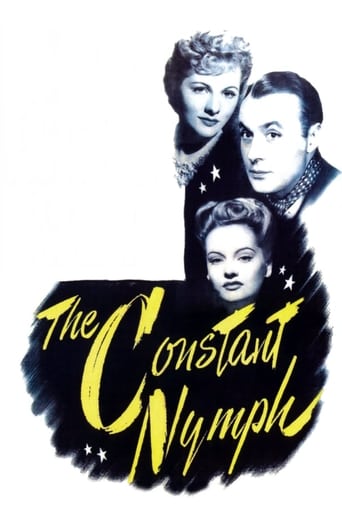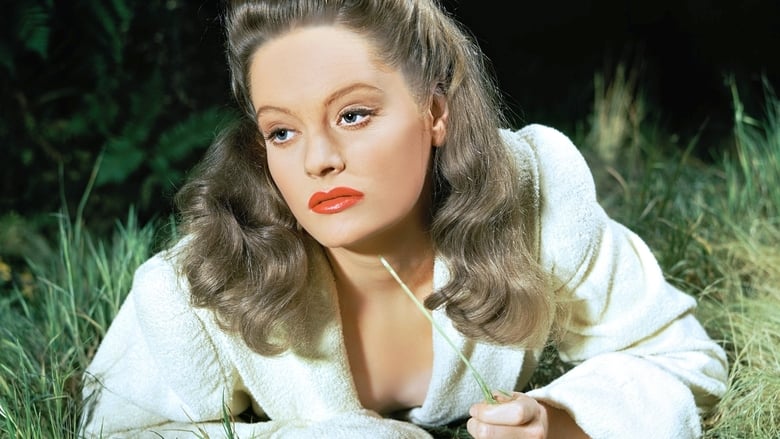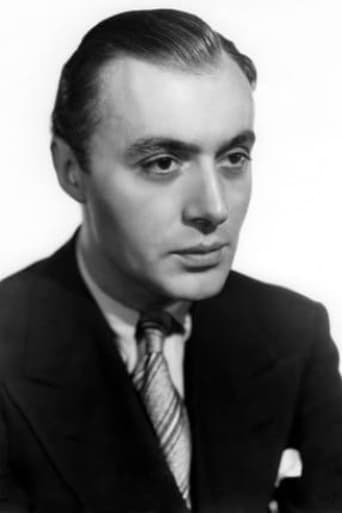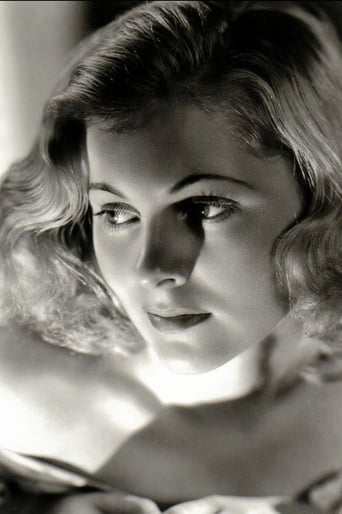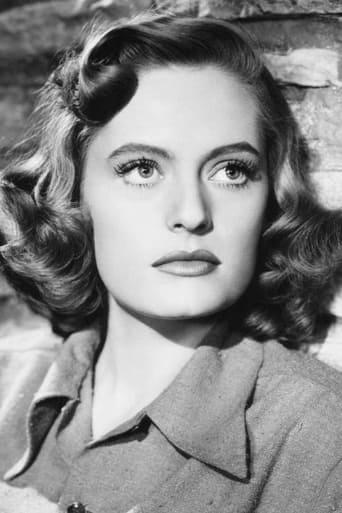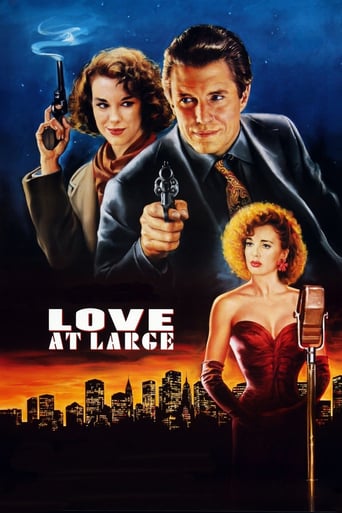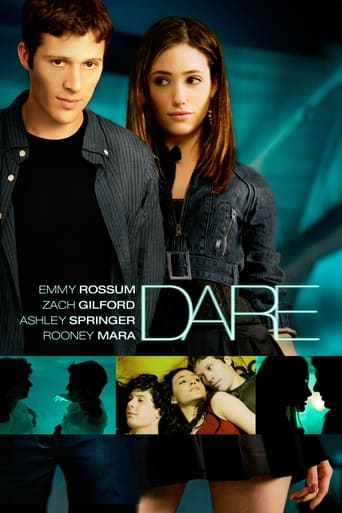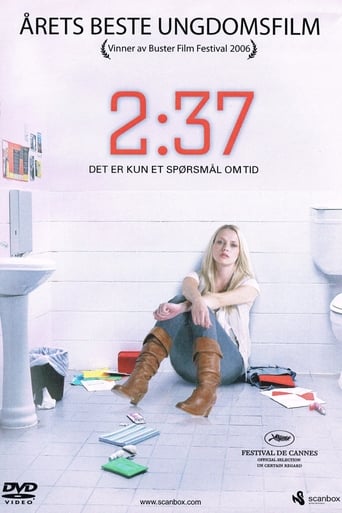The Constant Nymph (1943)
The daughter of a musical mentor adores a promising composer, who is quite fond of the adolescent. When her father dies, an uncle arrives with his own grown daughter, who begins a romance with the composer which culminates in marriage but creates an emotional rivalry that affects the three.
Watch Trailer
Free Trial Channels
Cast


Similar titles
Reviews
I like the storyline of this show,it attract me so much
recommended
Intense, gripping, stylish and poignant
While it doesn't offer any answers, it both thrills and makes you think.
The idea of Joan Fontaine at age 25 playing a teenage girl certainly inspired my curiosity about this film. Her performance, which was one of her favorites, was Oscar nominated. Tessa Sanger is a role of complexity and Fontaine gives her a naive nobility in the body of a girl who is energetic and awkward. The daughter of a musical composer, she is infatuated with Lewis Dodd (Charles Boyer), a family friend who periodically comes to visit.Lewis is a frustrated composer with little regard for social conventions. His cynical nature is somewhat abated whenever he visits the Sangers, who live far outside the city. Lewis marries into a rich family and his wife, Florence (Alexis Smith), does her best to accommodate his artistic temperament, but she begins to see Tessa as a divisive factor in their relationship.The music in the film supports the film's story about love. Tessa's love is selfless and pure, the stuff of pure romanticism. Such sentiments are not available to Lewis, and his compositions reflect his inability to access emotional depth. Musical director Erich Wolfgang Korngold supplies a score that consciously illustrates the contrast between the dissonance of modernism with the melodic lushness of romanticism. This culminates in the dramatic and satisfying final scenes.Fine acting, solid direction by Edmund Goulding, wonderful music, beautiful fashions (if only they were in color!) all make for a unique film about love that may be timeless despite the tragic consequences of time. At its core is the performance by Fontaine, who is a joy to behold.
It was tough in the beginning to accept Joan Fontaine as a teenager. Like everyone else, I had seen her in grown-up roles, and here she was playing a jail-bait 14 year-old. But as the picture wore on she got better and better at it, and by the end of the picture she was excellent - but she was not enough to raise what is essentially a middling woman's picture to greater heights.It was certainly not for lack of trying on the part of the studio. Production values were very good and the cast alone must have cost a bundle, with the likes of Charles Boyer, Peter Lorre, Charles Coburn and Alexis Smith on hand, although several well-known character actors were largely wasted in small roles. I thought this picture might have been Alexis Smith's finest moment. She was both hateful and pathetic as Boyer's jealous wife.I also disagree with some other reviewers regarding the musical score. Eric Wolfgang Korngold wrote the score for many Hollywood classics but here I thought the music rather tuneless and not up to his usual high standard. In sum, I thought "The Constant Nymph" a noble effort but the story was not compelling enough to rate it higher than a six. A good picture but not a great picture.
Having heard for years that THE CONSTANT NYMPH was one of Joan Fontaine's favorite performances and knowing that Erich Wolfgang Korngold wrote the score for it, I looked forward to the film with much anticipation when I finally had a chance to see it.Unfortunately, aside from good performances from Charles Boyer and Alexis Smith, I found Miss Fontaine's Tessa just too cloying and simpering to be realistic. I thought she played the awkwardness of youth much better in LETTER FROM AN UNKNOWN WOMAN, a really much more solid and forceful role. Tessa just seems to be a girl inordinately fond of a musician who doesn't realize, until too late, what the girl means to him.Oddly enough, the scenes between Boyer and Alexis Smith are more developed than any of the quieter scenes between Boyer and Fontaine. Smith makes the wife a sympathetic creature because her jealousy is easy to comprehend.An altogether disappointing film aside from a glorious score by Korngold that leads to the final concerto where he fully develops the love theme for Boyer and Fontaine.Unfortunately, most of the sets for the country scenes early in the story look like painted backdrops so that one never gets the feeling that Tessa's environment is a real one. Nor does the story give Joan Fontaine ample opportunity to fully flesh out her character since she is missing from much of the middle portion of the film.For a great Fontaine performance, I suggest viewing LETTER FROM AN UNKNOWN WOMAN with Joan at her best.
This film is one of the hardest to find great films of its day. Joan Fontaine considers it to be one of her two best performances, the other being her work in Letter From An Unknown Woman. Both films share an abundance of similarities. In each, she devotes her life to her love of a musician. Music is as significant and intrinsic to the films as any major character. In addition, the two films both allow Fontaine the dramatic luxury of playing her characters as children. She pulls this off more successfully than any other actress I have seen. In fact, my favorite parts of both films were the early scenes in which she was playing her characters at their most youthful. The Constant Nymph offers some fascinatingly complex characterizations, including Alexis Smith's Florence, whom we hate and feel sorry for at the same time (for stealing away Charles Boyer from Joan Fontaine). This is a very special film with some truly beautiful music. Catch it if you can!

